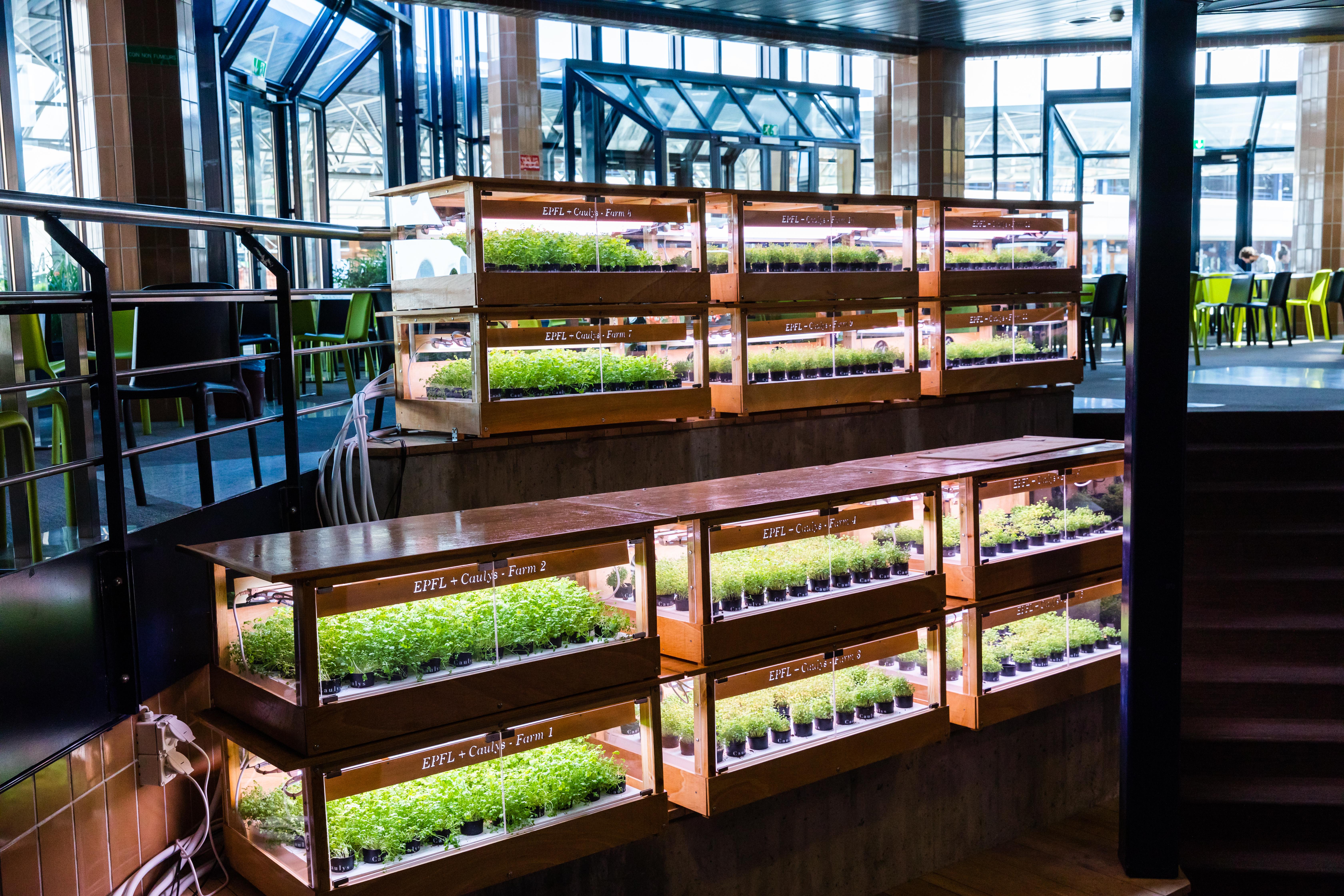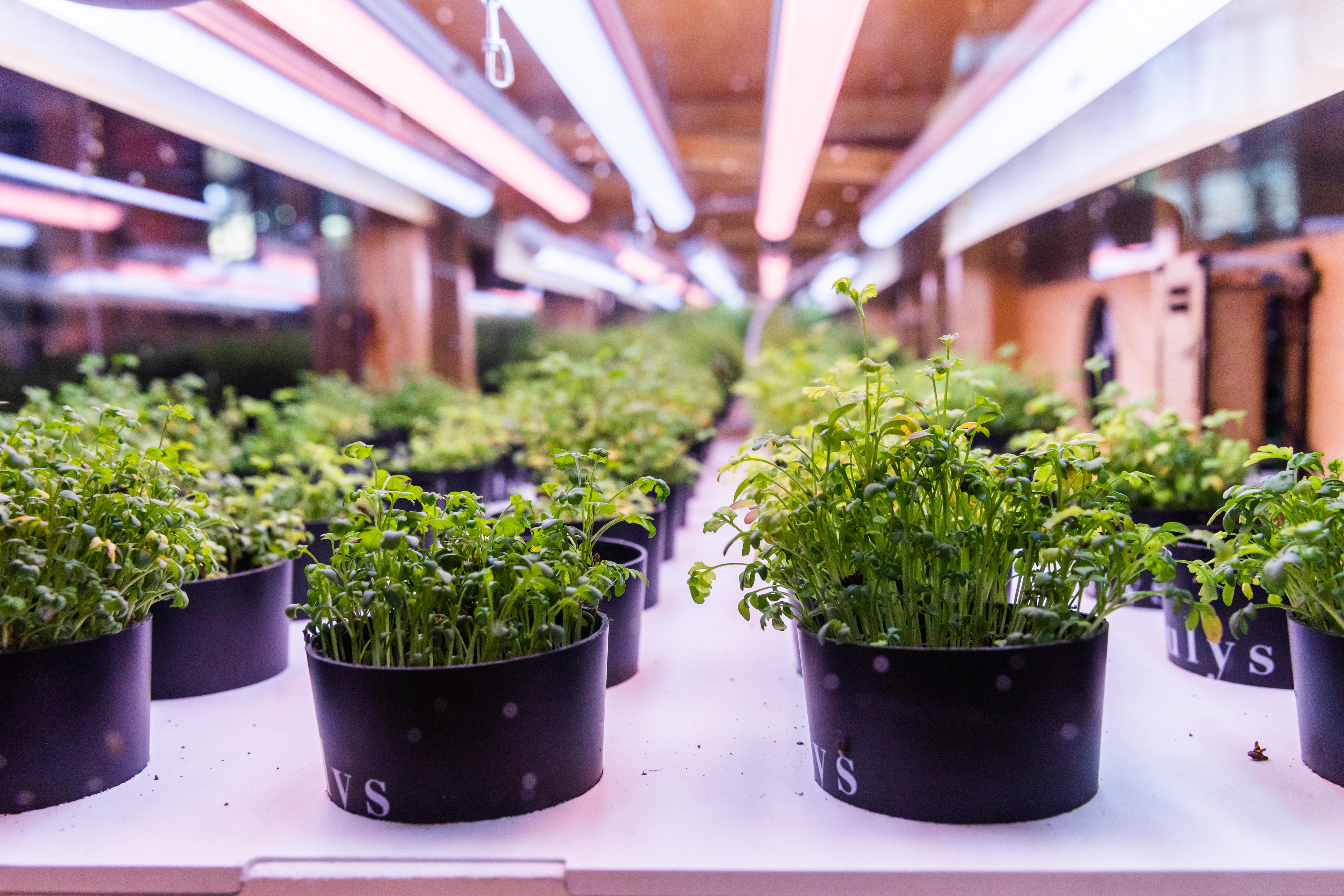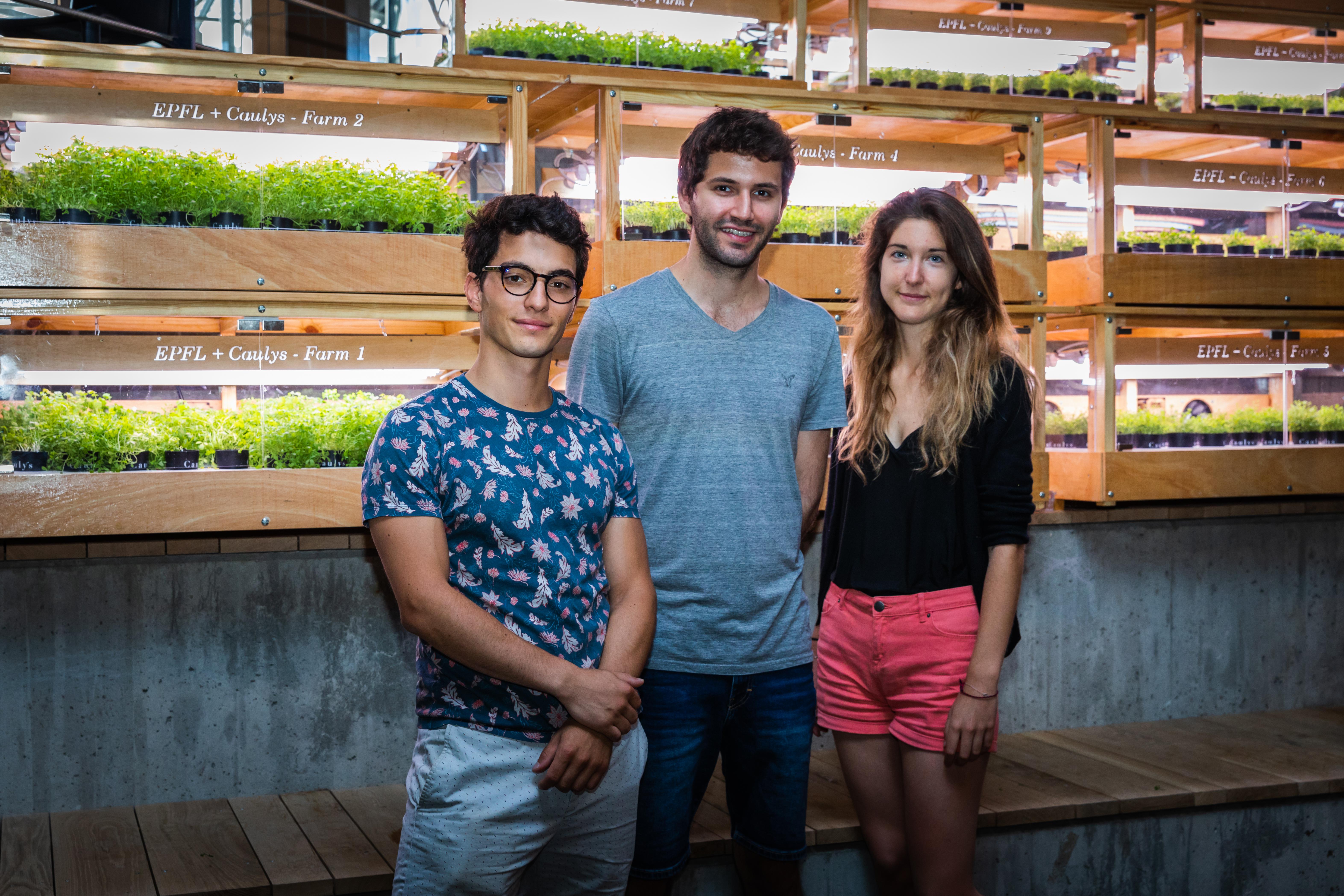Smart greenhouses let you grow vegetables in your own apartment

Grégoire Gentile, Caulys' CEO, Tom Lachkar, head of business development and Mathilde Lorans, marketing and sales © 2019 EPFL / Jamani Caillet
Two EPFL Master’s students have co-developed a technology for growing a small garden right in your home or office. They launched a startup to market their smart indoor greenhouses and installed prototypes at EPFL with the support of the Act for Change LAB platform (EPFL Sustainability).
Caulys, a startup co-created early this year by two EPFL Master’s students, is preparing to market connected indoor greenhouses that let you grow your own basil, lettuce or strawberries – even in the middle of a city. Their goal is to help urbanites become producers of fresh local fruits and vegetables. Or in other words, to “bring agriculture downtown” by equipping apartments and other buildings with their own little gardens.
The startup’s systems are modular in design and operate autonomously. By allowing consumers to cultivate their own produce, they eliminate the need for plastic packaging, pesticides and GMOs – and prevent the carbon emissions associated with shipping food over long distances. They also improve food traceability.
“Most of the fruits and vegetables we see at the supermarket were selected not for their taste and nutritional value, but for their resistance to disease and shipping-related damage. What’s more, nearly half of it goes bad along the way,” says Grégoire Gentile, the startup’s co-founder and CEO, and a Master’s student in mechanical engineering at EPFL's School of Engineering.
Optimal conditions for plant growth
The technology consists of modules; each system can have up to four shelves and house 200 plants. Sensors and LEDs continually monitor and adjust the systems’ light, temperature and humidity to create just the right conditions for the budding plants. And because the soil is watered using a closed-loop irrigation system, Caulys’s greenhouses use up to 95% less water than conventional farming methods.

The modules are being tested on the EPFL campus @EPFL 2019 / Jamani Caillet
“There soon won’t be enough arable land left on our planet to feed the whole population. Greenhouses like ours could be used to supplement traditional farms,” says Tom Lachkar, Caulys’s co-founder and head of business development, and a Master’s student in bioengineering at EPFL.
Just plug it in and add water
One big advantage of Caulys’s greenhouse is that it is easy to use. All you have to do is plug it in, place a soil unit – consisting of a natural substrate, seeds and nutrients – in each shelf and fill the reservoir with water. Then you can just sit back and watch your plants grow.
However, you will need to add fresh water to the reservoir occasionally. “We imagine people wouldn’t need to spend more than 20 minutes a week maintaining their gardens,” says Grégoire Gentile.
The first tests are being done on the EPFL Campus@ EPFL 2019 / Jamani Caillet
To test their greenhouses, the project team installed 18 systems with 50 plants each in an EPFL cafeteria where they are being used to grow radishes, arugula and basil microgreens. These tests are being carried out with the support of the campus’ sustainable projects platform, Act for Change LAB, and the EPFL Sustainability unit. The next step for the company will be to grow lettuce, herbs and small fruits and vegetables.

Grégoire Gentile, Tom Lachkar and Mathilde Lorans,membres of Caulys @EPFL 2019 / Jamani Caillet
The start-up has carried out a first Life Cycle Analysis. The results obtained are very encouraging”, says Tom Lachkar, “the use of Caulys greenhouses would allow us to consume fruit and vegetables with a lower CO2 impact than the majority of the circuits currently used.”
Caulys hopes to launch its greenhouses on the market by the end of the year at a price of around CHF 3,000 for a four-shelf unit. In terms of power consumption, a two-shelf unit should use around 840 kWh a year – the same as two standing halogen lamps.
The invention has already won them the Young Entrepreneur Prize, which included CHF 10,000 in prize money, and an XGrant, also worth CHF 10,000. Caulys, based at UniverCité in Renens, is supported by Genilem and joined MassChallenge Switzerland acceleration program in 2018.
The on-campus tests of Caulys’s greenhouses were made possible thanks to the support of EPFL’s Sustainable Campus initiative, Act for Change Lab, Facilities Management Department, Innovation Park and faculty members.